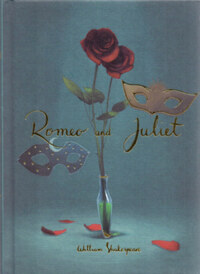

As he aged, he hoped, in the words of his Prelude, he had gained “Knowledge not purchased with loss of power.” My book allows us to appreciate again that matured power. He continued to contest them because he shared with them the belief in the power of poetry. As he aged, he came to admire more the style of the younger writers he outlived, but he continued to define his increasingly religious and conservative views in response to their skepticism and radicalism. In the final section of my book, I offer an approach to truly late Wordsworth, as he turns to retrospection and the re-collection of his own works to think through and from the perspective of old age.

Wordsworth died at the age of 80 in 1850, having published his last new volume of original verse in 1842 and becoming the poet laureate 1843.

He outlived Shelley and every other major writer of the period-Jane Austen, Keats, Byron, Felicia Hemans, Sir Walter Scott.
#WILLIAM WORDSWORTH ROMANTICISM HOW TO#
In his lovely though late River Duddon sonnets (1820), he contests Shelley over how to read nature. In his controversial Peter Bell, begun as a “lyrical ballad” but only published in 1819 when it takes on a quite different meaning, Wordsworth sought to combat both what he saw as a kind of Byronic nihilism and what he felt were radical versions of his own experimental poetics.
#WILLIAM WORDSWORTH ROMANTICISM SERIES#
He and his younger contemporaries battled, in a series of mostly overlooked poems, about how to respond to Waterloo and the apparent defeat of not just Napoleon but the ideals of the French Revolution of the 1790s. Wordsworth, far from retreating into some aesthetic funk after 1810, increasingly engaged with the public, seeking both to define modern poetry and to use poetry to shape the modern world. Writing alongside and in competition with these poets, Wordsworth remakes himself as a “second generation” romantic, continuing to speak to a changing society. Rather than offering a story of two “generations” of Romantic poets-with Wordsworth “fathering” rebellious “sons”-I show both how deeply interconnected Wordsworth was with his younger rivals and how these personal relations gave way to party battles between Wordsworth and the “Lake School” and the “Cockney School” of younger writers. In fact, Wordsworth developed his later poetry in conversation with these younger writers, contesting both their poetics and their politics. We see these younger writers as having been influenced by Wordsworth and then as essentially having shoved him off the literary stage. Wordsworth’s appears “late” in part because he continues to write at a time when new poetic voices-the “second generation” of romantic poets including Percy Bysshe Shelley, Keats, and particularly Lord Byron-could be heard. In my new book, William Wordsworth, Second Generation Romantic, I provide a strikingly different account.

Recognized for having, with Samuel Taylor Coleridge, revolutionized poetry, when they published Lyrical Ballads in 1798, Wordsworth, over the next ten years, wrote some of the best loved (“Daffodils”) and most influential poems (“Tintern Abbey”) in the English language.īut most scholars see Wordsworth’s poetry declining after this “great decade,” what Matthew Arnold called Wordsworth’s “golden prime.” By 1810, at the age of 40, Wordsworth was seen as headed downhill, as already “late, as “old.” The remaining four decades of his life are often described by critics as an “anti-climax.” This oft-repeated story of decline deserves our skepticism. Yet we rarely ask, “Can a career be too long?” As I move through my 60s, that’s not just something I ask myself personally it is also a question that has plagued criticism of an author I’ve spent decades teaching, studying, and now writing about: William Wordsworth. These stories may strike us as examples of promise lost, of vocations cut short. Shakespeare retired to Stratford at the height of his powers Arthur Rimbaud abandoned poetry at 20 to become, at different times, a construction worker, a coffee grower, an arms trafficker. We puzzle over decisions to abandon success. We lament deaths that shorten great careers, as with Mary Wollstonecraft or John Keats.


 0 kommentar(er)
0 kommentar(er)
